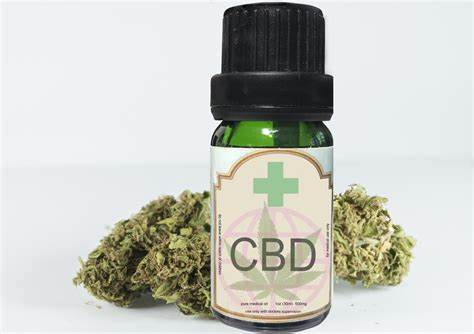Medical cannabis has been gaining recognition and popularity in recent years due to its potential therapeutic properties. Among the many compounds found in cannabis, cannabidiol (CBD) has emerged as a promising candidate for various medical applications. CBD is known for its non-psychoactive nature, making it an appealing option for patients seeking relief without the intoxicating effects often associated with cannabis. This comprehensive overview aims to explore the healing potential of medical CBD, shedding light on its various uses, benefits, and potential limitations. By delving into the scientific research and anecdotal evidence surrounding CBD, this overview will provide a comprehensive understanding of how this compound may be used to enhance health and well-being.
Exploring the Healing Potential of Medical CBD A Comprehensive Overview
In recent years, there has been a growing interest in the potential health benefits of medical CBD (cannabidiol). CBD, one of the many compounds found in cannabis plants, is garnering attention for its potential therapeutic properties. While CBD does not possess the psychoactive effects associated with its counterpart, THC (tetrahydrocannabinol), it has been found to have various medicinal properties that make it an intriguing subject of study.
CBD is known to interact with the body’s endocannabinoid system, a complex network of receptors found throughout the body that helps regulate various physiological functions. This interaction is believed to be responsible for the potential therapeutic effects of CBD.
One area where CBD has been extensively researched is its potential as an anti-inflammatory agent. Inflammation is a natural response by the body to protect and heal itself, but chronic inflammation can lead to various health issues. CBD has shown promise in reducing inflammation and may be beneficial in managing conditions such as arthritis, multiple sclerosis, and inflammatory bowel disease.
Another area of interest is CBD’s potential as an analgesic or pain reliever. Studies have suggested that CBD may help alleviate chronic pain by interacting with the endocannabinoid system and reducing inflammation. This makes it a potential alternative to traditional pain medications, which often come with unwanted side effects and the risk of addiction.
CBD has also shown promise in the field of mental health. Research suggests that CBD may have anxiolytic properties, meaning it could help reduce anxiety and stress. This has led to investigations into its potential as a treatment for various anxiety disorders, including generalized anxiety disorder, social anxiety disorder, and post-traumatic stress disorder. CBD’s potential as an antidepressant is also being explored, with early studies showing promising results.
Epilepsy is another area where CBD has gained attention. In 2018, the United States Food and Drug Administration (FDA) approved Epidiolex, a CBD-based medication, for the treatment of two rare forms of epilepsy – Lennox-Gastaut syndrome and Dravet syndrome. This landmark approval has opened doors for further research into CBD’s role in managing seizures and epilepsy-related conditions.
While promising, it’s important to note that research on CBD is still in its early stages, and more studies are needed to fully understand its potential benefits and long-term effects. Additionally, the use of CBD as a medical treatment is not without controversy, and regulations surrounding its use vary greatly between countries and regions.
It’s crucial to consult with a healthcare professional before incorporating CBD into your treatment plan, especially if you have pre-existing medical conditions or are taking other medications. They can provide guidance and help you determine the appropriate dosage and form of CBD based on your individual needs.
the potential healing properties of medical CBD are exciting and warrant further exploration. From its anti-inflammatory and analgesic effects to its potential in managing mental health disorders and epilepsy, CBD has shown promise in various areas. However, it is important to approach CBD use with caution and under medical supervision. As research continues, a clearer understanding of CBD’s therapeutic potential will emerge, potentially offering new treatment options for a range of medical conditions.




